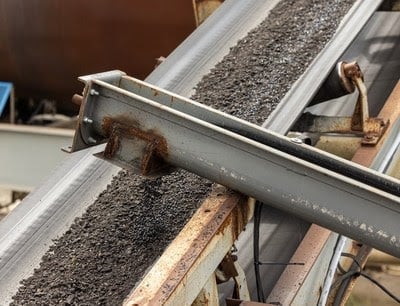Rubber-Modified Asphalt: Driving the US to a More Circular Economy
COMMENTARY

With the latest U.N. Intergovernmental Panel on Climate Change warning that it is now or never to address climate change, sustainability has never been a more urgent priority. A great way to reduce our environmental footprint is to make efforts toward a circular economy, which involves reusing, repairing, refurbishing and recycling existing materials into new products. To achieve a circular world, addressing sustainability in infrastructure is critical. While infrastructure provides the underpinnings for society at large, projects may disrupt ecosystems and have the potential for noise, air and water impacts that exponentially increase as development grows.
Rubber recycling presents an excellent opportunity to make progress toward an entirely circular economy. When the rubber recycling industry first emerged, it was largely out of necessity due to the environmental degradation occurring from rubber being put in landfills and dumped illegally. However, this system of recovery and secondary usage now keeps more than 225 million tires out of landfills each year, while supporting nearly 8,500 jobs with an estimated economic impact of $2.47 billion.
One excellent example of a sustainable infrastructure solution provided by rubber recycling is rubber-modified asphalt. RMA is a type of asphalt mixture that uses ground rubber from end-of-life tires. Compared to regular asphalt, RMA reduces costs by 43% and doubles the lifespan of roads, thanks to its cracking and rutting resistance, according to research from the University of Missouri in conjunction with the U.S. Tire Manufacturers Association and Georgia-based nonprofit The Ray. Additionally, the use of RMA has been found to produce a 32% reduction of CO2 emissions compared to traditional asphalt.
However, while research has long supported the benefits of RMA, the market for this solution still has a lot of room to grow. For instance, in a letter to the White House, a coalition of leading tire manufacturers and recyclers (including Liberty Tire) emphasized that RMA can help achieve the program goals of the bipartisan infrastructure law thanks to its benefits over traditional asphalt, noting RMA and other recycled rubber products “can not only play a vital role in meeting the goals of the bipartisan infrastructure law but also represent useful tools for Biden administration priorities such as waste reduction, recycling and the transition to a circular economy.”
With current road-making practices leading to rising costs and resulting in significant emissions, we at Liberty Tire and the Recycled Rubber Coalition know that RMA will help make our infrastructure more sustainable and durable given its proven performance and environmental benefits.
With the $110 billion investment in surface transportation infrastructure provided by the bipartisan infrastructure law, the U.S. has an opportunity to create infrastructure that’s not only long lasting but also sustainably made. Addressing climate change and creating a circular world requires a concerted, consistent effort, and using RMA as an environmentally friendly, durable infrastructure solution pushes us one step closer to that world.
Doug Carlson is the vice president of Asphalt Products at Liberty Tire Recycling, the premier provider of tire recycling services in North America. Douglas has been in the rubberized asphalt industry since 1998, including 12 years with the Rubber Pavements Association. Liberty Tire Recycling is a member of the Recycled Rubber Coalition, an organization dedicated to the innovative and environmentally friendly reuse of rubber products.























